Month: May 2023

MMS • Sergio De Simone

AirBnb has historically managed its own fleet of Macs to run its iOS continuous integration pipeline. Thanks to AWS providing support for Macs, AirBnb engineers could migrate their iOS CI infrastructure to AWS to increase flexibility, consistency, and efficiency.
Contrary to how AirBnb manages the rest of platforms it supports, the CI pipeline for iOS did not originally run on AWS. In fact, using Macs enabled leveraging Apple tools to build the iOS app and run its tests, but increased maintenance costs and reduced testing efficiency.
In particular, an engineer had to ensure the entire fleet of Macs was enrolled in AirBnb mobile device management tool as well as that they ran the latest version of macOS and Xcode. Having a dedicated engineer did not prevent the possibility that some Macs could enter a bad state and be excluded from the pipeline. Updating to the latest Xcode also posed a number of issues, with the potential effect of further reducing the fleet of available machine for testing and maintenance cost.
The availability of macOS AMIs, explains AirBnb engineer Michael Bachand, allowed AirBnb to move its CI pipeline to AWS, with a number of distinct benefits. Those include the possibility of using a single AMI used to automatically launch any additional instance required as well as consolidating the CI infrastructure across all supported platforms.
AirBnb uses HashiCorp Packer to build AMIs. The tool is able to launch and configure an EC2 instance based on a template defined in the HashiCorp configuration language (HCL). This step can be fully automated and the Packer template can be version-managed using Git.
Another essential component in AirBnb CI solution is Terraform, which is used to deploy the iOS CI infrastructure to AWS in a way similar to other supported platforms.
All of our AWS infrastructure for iOS CI is specified in Terraform code that we check into source control. Each time we merge a pull request related to iOS CI, Terraform Enterprise will automatically apply our changes to our AWS account.
Scaling is handled through Auto scaling groups using a modified version of buildkite-agent-scaler. Instances are created from a launch template, which specifies all of its characteristics, including the AMI and a “launch” script.
This CI setup provides a number of advantages, says Bachand. On the one hand, it makes it easy to create a new CI environment for each required CPU architecture and Xcode version. When the CI environment is not used, it can be disabled changing the Auto scaling group configuration.
Another advantage of this setup is the possibility of rotating instances by terminating and replacing them daily. This reduces the chance that instances drift by clearing their internal SSD, the NVRAM variables, and updating the firmware. In case an instance experience a drift anyway, it is easy to exclude it from the autoscaler and add a new, clean instance.
Thanks to this approach, writes Bachand, AirBnb has been able to get the benefits of virtualization without the performance penalty of using virtual machines and to unify how they handle their CI infrastructure for every supported platform. Do not miss the original article if you are interested in the full detail about their migration.

MMS • Almir Vuk
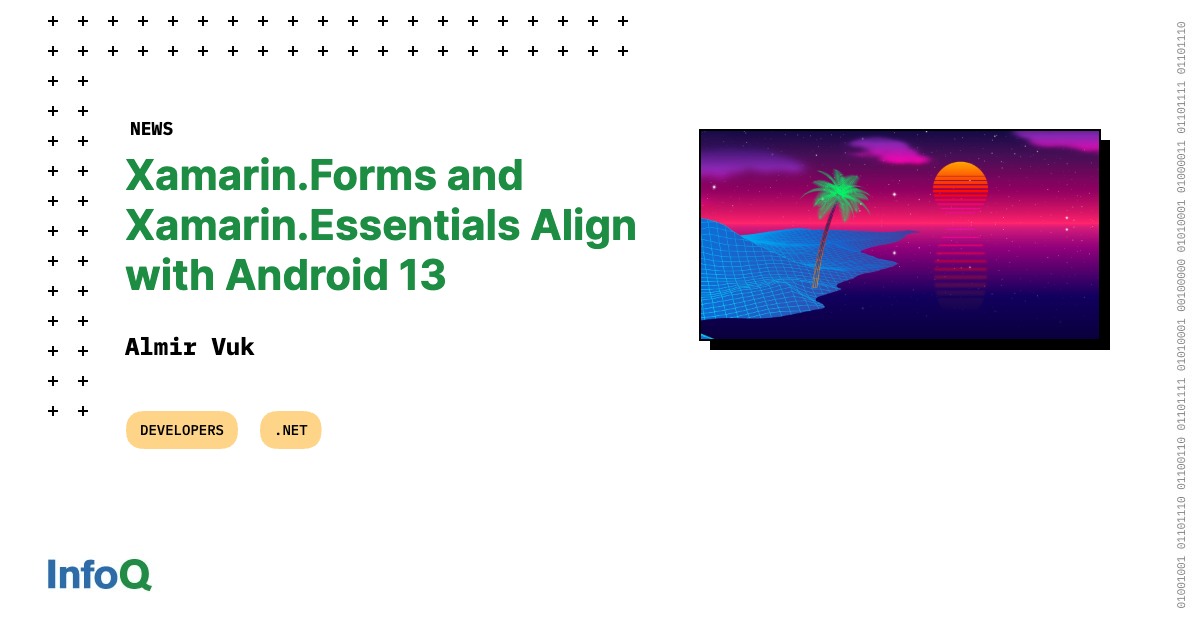
Earlier this week, the Xamarin team published the announcement, that Xamarin.Forms and Xamarin.Essentials have been updated to target Android 13, aligning with Google’s requirement for new Android apps to target at least Android 13 starting from August 2023. The update, which is currently in preview, aims to ensure compatibility with the latest Android version and provide a smooth transition to the future of cross-platform development, .NET MAUI.
The update brings Xamarin.Forms and Xamarin.Essentials are in line with the MonoAndroid13 target by default, allowing developers to take advantage of the latest features and improvements offered by Android 13. To facilitate the upgrade process, a preview release has been made available, enabling developers to test their apps and prepare for the transition.
While Xamarin support is set to end on May 1, 2024, developers are encouraged to embrace .NET MAUI, which already supports Android 13. .NET MAUI offers an enhanced ecosystem for cross-platform development, providing a seamless transition from Xamarin to the future of .NET-based development. Detailed upgrade guides and the newly released “.NET Upgrade Assistant” extension for Visual Studio 2022 can assist developers in migrating their apps to .NET MAUI.
The Xamarin.Forms update also includes compatibility enhancements for AndroidX binding packages and other dependencies. While most packages have been updated, Xamarin.AndroidX.Lifecycle remains at version 2.6.1 due to a known issue under investigation. Developers may encounter warnings in their build output related to the “unknown enum constant Scope.LIBRARY_GROUP_PREFIX,” and in an announcement post, the author of it, Gerald Versluis states that the issue is currently being investigated.
As reported few steps need to be done in order to begin targeting Android 13 with Xamarin.Forms and Xamarin.Essentials. The first one is that developers need to ensure they have Xamarin.Android 13 installed, update their NuGet packages to the latest preview versions (Xamarin.Forms 5.0.0.2599-pre1 and Xamarin.Essentials 1.8.0-preview1), and update the targetSdkVersion in their Android project’s AndroidManifest.xml to 33 (Android 13). Lastly, rebuilding the project will allow developers to test the functionality and compatibility of their apps.
As stated earlier, the support for Xamarin products concludes on May 1, 2024, based on that the developers should consider transitioning to .NET MAUI for future cross-platform projects. In the original announcement post, the team states that starting new projects directly with .NET MAUI is recommended while existing Xamarin.Forms projects can be upgraded using the .NET Upgrade Assistant.
The .NET MAUI documentation provides comprehensive resources to assist developers in adopting this next-generation framework.
In addition to an original post, in the comment section, a user named Anderson Damasio expressed excitement about Xamarin.Forms and support which is still getting. On May 15, 2023, the user wrote the following comment:
It’s great to know that there’s an investment in Xamarin Forms. We know that there are a large number of developers with the platform.
Congratulations
With Xamarin.Forms and Xamarin.Essentials now targeting Android 13 (in preview), developers can embrace the latest Android features while preparing for the transition to .NET MAUI. The update ensures compatibility and provides time for developers to migrate their projects. As the preview versions undergo testing, a stable release is expected ahead of Google’s August 2023 deadline. The community members are also invited to visit the official GitHub project repository and learn more and provide valuable feedback.
SingleStore Launches MongoDB API to Power AI and Real-Time Analytics on JSON – Yahoo Finance

MMS • RSS
New SingleStore Kai ™ for MongoDB provides 100 -1000x faster analytics and vector functionality for AI for MongoDB applications
SAN FRANCISCO, May 18, 2023–(BUSINESS WIRE)–SingleStore, the cloud-native database built for speed and scale to power real-time applications, today announced the launch of SingleStore Kai™ for MongoDB, a new API that turbocharges real-time analytics on JSON (JavaScript Object Notation) and vector based similarity searches for MongoDB based AI applications — without the need for any query changes or data transformations.
SingleStoreDB is a real-time distributed SQL database combining analytical and transactional workloads in one unified platform. In a new era of the ever increasing adoption of AI, making analytics real time and actionable is even more imperative. A vast majority of data accumulated in the world today is in JSON format, and MongoDB has grown to be one of the most widely adopted NoSQL databases to store and process JSON — powering a variety of use cases across martech, IoT, gaming, logistics, social media, e-commerce and content management applications.
However, document databases are not optimized for analytics, and users often experience delays or lagging query performance attempting to perform analytics on JSON data. SingleStoreDB, by contrast, is architected to power real-time analytics on transactional data, enabling users to drive ultra-fast analytics on both structured and semi-structured (JSON) datasets. The new API is MongoDB wire protocol compatible, and enables developers to power interactive applications with analytics with SingleStoreDB using the same MongoDB commands.
SingleStoreDB can effectively augment MongoDB as the analytical engine to power blazing fast analytics on collections of JSON data. More importantly, this powerful feature is available at no extra cost and is now open for public preview as part of the SingleStoreDB Cloud offering.
Some of the new capabilities of the API include:
– 100x–1,000x faster analytics. With SingleStore Kai, you can perform complex analytics on JSON data for MongoDB applications faster and more efficiently. Based on the latest performance benchmarks, SingleStoreDB was able to drive 100x faster analytical performance for most queries — with some even 1,000x faster compared to MongoDB. The SingleStore MongoDB API proxy translates the MongoDB queries into SQL statements that are executed by SingleStoreDB to drive lightning-fast analytics for your applications.
– AI/vector functionality for JSON. The new era of generative AI requires real-time analytics on all data, including JSON collections. SingleStoreDB supports vectors and fast vector similarity search using dot_product and euclidean_distance functions. And with the launch of SingleStore Kai, developers can now utilize the vector and AI capabilities on JSON collections within MongoDB — powering use cases like semantic search, image recognition, similarity matching and more.
– Simplicity and ease of use. No code changes, data transformations, schema migrations or changes to existing queries. Developers can continue to use existing MongoDB queries and don’t have to normalize or flatten data, or do extensive schema migrations to power fast analytics for their applications.
– Same MongoDB tools and drivers. By supporting the MongoDB wire protocol, SingleStore Kai allows MongoDB clients to communicate with a SingleStoreDB cluster. This means that developers who are familiar with MongoDB can easily power fast analytics on SingleStoreDB without having to learn a new set of tools or APIs — and can continue to use the same MongoDB tools, drivers, skill sets and ecosystem their customers are most familiar with.
– Easy data replication. As part of the MongoDB API offering, SingleStore is also introducing a fast and efficient replication solution (in private preview) that can easily replicate MongoDB collections into SingleStoreDB. This service is natively integrated into SingleStoreDB and leverages one of the most widely used features – SingleStore Pipelines — to drive speedy replication and real-time CDC (Change Data Capture), enabling customers to get started quickly and easily.
– Best of both worlds (NoSQL + SQL). SingleStoreDB is already MySQL wire protocol compatible. With the addition of SingleStore Kai for MongoDB, developers can essentially get the best of both worlds – the schema flexibility and simplicity of a JSON document store together with the speed, efficiency and complex analytical capabilities that only a relational SQL database can provide to power applications.
“The demand for real time analytics is undeniable and critical to today’s economy,” said Raj Verma, CEO, SingleStore. “With SingleStore Kai, we’re enabling any developer using MongoDB’s NoSQL platform to use SingleStore’s SQL analytics data platform, at orders of magnitude improved performance, without changing a line of code.”
“The reality is that MongoDB is not performant enough for powering fast analytics on JSON and joining complex JSON arrays can be both time consuming and costly,” said Yatharth Gupta, SVP Product, SingleStore. “With SingleStore Kai, developers now have a one stop shop to supercharge analytics on their MongoDB applications without having to recode or learn anything new – that’s a huge win-win.”
“This is a fantastic solution and a timely one,” said Kumaran Vijayakumar, CEO and Co-Founder, DataDock Solutions. “At DataDock, we help the world’s largest hedge funds structure products and execute trades. SingleStore helps us make exactly the right data and analytics available to our customers at the right time, in real time, and allows us to handle large volumes of data with ease.”
SingleStoreDB powers real-time data innovation for hundreds of customers including more than 100 Fortune 500, Forbes Global 2000, and Inc. 5000 brands across financial services and fintech, telecom and networking, streaming media, adtech, martech, supply chain logistics, and other verticals. Companies like 6sense, Cisco, Comcast, Dell, Disney, Heap, Hulu, LiveRamp, NBC, Siemens, SiriusXM/Pandora, Sony, Thorn, Uber, Western Digital, and others use SingleStoreDB to fuel real-time customer experience analytics and interactive dashboards.
“SingleStore has consistently demonstrated its ability to innovate and evolve,” said Carl Olofson, Analyst, IDC. “We’ve seen a growing demand in the analytic database market for leveraging a range of data, including JSON documents, together with relational tables in a single system. SingleStore Kai is an outstanding example of such leveraging, as it makes analytics on JSON fast and easy within SingleStore’s traditional SQL system.”
Additional Resources:
-
Try SingleStore Kai for MongoDB
-
Upvote SingleStore Kai for MongoDB on ProductHunt
-
Read the SingleStore blog introducing SingleStore Kai for MongoDB
About SingleStore:
The world’s leading brands rely on data – to make the right business decisions, to deliver exceptional customer experiences and to stay ahead of the competition. This reliance on data brings with it a need for simplicity, speed and scale. SingleStore delivers the world’s fastest distributed SQL database for real-time applications, SingleStoreDB. By combining transactional and analytical workloads, SingleStore eliminates performance bottlenecks and unnecessary data movement to support constantly growing, demanding workloads. Digital giants like Hulu, Uber and Comcast, and many more of the world’s leading SaaS providers, choose SingleStore to unleash the power of their data – supercharging exceptional, real-time data experiences for their customers. Follow us @SingleStoreDB and @SingleStoreDevs on Twitter or visit www.singlestore.com.
View source version on businesswire.com: https://www.businesswire.com/news/home/20230518005338/en/
Contacts
Jessica Rampen
Director of Communications & PR at SingleStore
jrampen@singlestore.com

MMS • RSS

U.S (New York)– The newly published report for “NoSQL Market” in the years 2023-2031 comprehensively covers all aspects of the market, presenting the latest information on current trends. It serves as a valuable source of insightful information for business strategists. The report conducts an in-depth assessment of various industry features, including market overview, current development evaluations, historical and future valuation, recent trends, Porter’s five forces analysis, technological advancements, SWOT assessments, and the presence of clients in different regions.
NoSQL (Not Only SQL) is a database mechanism developed for storage, analysis, and access of large volume of unstructured data. NoSQL allows schema-less data storage, which is not possible with relational database storage. The benefits of using NoSQL database include high scalability, simpler designs, and higher availability with more precise control. The ability to comfortably manage big data is another significant reason for the adoption of NoSQL databases. The NoSQL technology is emerging in the database market horizon and is expected to grow rapidly over the next few years.
Download Free Sample of This Strategic Report:https://reportocean.com/industry-verticals/sample-request?report_id=AMR855
This research provides valuable information to enhance understanding, broaden scope, determine future roadmaps, and explore the types and applications discussed in the report. Furthermore, the report includes a detailed study of market segmentation, company profiles, as well as regional and country breakdowns. By reading this research, readers will gain a clear and precise understanding of the market’s overall progress, enabling them to make informed decisions that will prove beneficial.
The rise in social media such as games, blogs, and portals such as Facebook, LinkedIn, and matrimonial sites, has led to surge in semi-structured and unstructured data. NoSQL is the only feasible technology to store and manage this data. The impact of this factor would further increase in future, due to rise in structured and/or unstructured data from applications such as social media, retail transactions, and web applications. Moreover, as NoSQL is the most suitable technology for agile app development, with rise in the app development economy, NoSQL adoption is set for an increase in the coming years, which in turn is expected to garner high market growth.
KEY BENEFITS FOR STAKEHOLDERS
– The study provides an in-depth analysis of the current & future trends of the market to elucidate the imminent investment pockets.
– Information about key drivers, restraints, and opportunities and their impact analysis on the global NoSQL market size is provided.
– Porter’s five forces analysis illustrates the potency of the buyers and suppliers operating in the NoSQL industry.
– The quantitative analysis of the market from 2018 to 2026 is provided to determine the global NoSQL market potential.
KEY MARKET PLAYERS
– Aerospike, Inc.
– Amazon Web Services, Inc.
– DataStax, Inc.
– Microsoft Corporation
– Couchbase, Inc.
– Google LLC
– MarkLogic Corporation
– MongoDB, Inc.
– Neo Technology, Inc.
– Objectivity, Inc.
KEY MARKET SEGMENTS
By Type
– Key-Value Store
– Document Database
– Column-based Store
– Graph Database
By Application
– Data Storage
o Distributed Data Depository
o Cache Memory
o Metadata Store
– Mobile Apps
– Data Analytics
– Web Apps
– Others (E-commerce and Social Networks)
Request To Download Sample of This Strategic Report:–https://reportocean.com/industry-verticals/sample-request?report_id=AMR855
By Industry vertical
– Retail
– Gaming
– IT
– Others
ByRegion
– North America
o U.S.
o Canada
– Europe
o Germany
o France
o UK
o Rest of Europe
– Asia-Pacific
o Japan
o China
o India
o Rest of Asia-Pacific
– LAMEA
o Latin America
o Middle East
o Africa
The Market Report covers various topics including:
- Top competitors in the global and regional market.
- Company profiles of major market participants.
- Technological prowess, future plans, and manufacturing, production, and sales of top manufacturers.
- In-depth explanations of market growth factors and discussions of various end users.
- Major global market application segments.
- SWOT analysis, Porter’s five forces analysis, and Patent analysis.
- Opinions and viewpoints of professionals and industry experts, along with export/import regulations
The report focuses on the following key points:
Market Players and Competitor Analysis: It covers industry players’ profiles, product specifications, production capacity/sales, revenue, price, gross margin, and sales. It provides a comprehensive analysis of the market’s competitive landscape, including information on vendors and factors that may challenge the growth of major market players.
Global and Regional Analysis: The report presents the current status and outlook of the global and regional markets. It offers detailed breakdowns for each region and country, including sales, sales volume, and revenue forecasts. The analysis is further segmented by types and applications.
Market Trends: The report highlights recent market developments that assist organizations in formulating more profitable strategies. It analyzes current trends, allowing customers to understand upcoming products and businesses to plan for improved solutions.
Opportunities and Drivers: The report identifies opportunities and drivers that businesses can leverage by making necessary preparations. It helps stakeholders and report buyers plan their investments and maximize returns.
Porter’s Five Forces Analysis: The report assesses the state of competition in the industry based on five fundamental forces: threat of new entrants, bargaining power of suppliers, bargaining power of buyers, threat of substitute products or services, and existing industry rivalry.
Request full Report :- https://reportocean.com/industry-verticals/sample-request?report_id=AMR855
About Report Ocean:
We are the best market research reports provider in the industry. Report Ocean is the world’s leading research company, known for its informative research reports. We are committed to providing our clients with both quantitative and qualitative research results. As a part of our global network and comprehensive industry coverage, we offer in-depth knowledge, allowing informed and strategic business conclusions to report. We utilize the most recent technology and analysis tools along with our own unique research models and years of expertise, which assist us to create necessary details and facts that exceed expectations.
Get in Touch with Us:
Report Ocean:
Email: sales@reportocean.com
Address: 500 N Michigan Ave, Suite 600, Chicago, Illinois 60611 – UNITED STATES
Tel:+1 888 212 3539 (US – TOLL FREE)
Website: https://reportocean.com

MMS • RSS
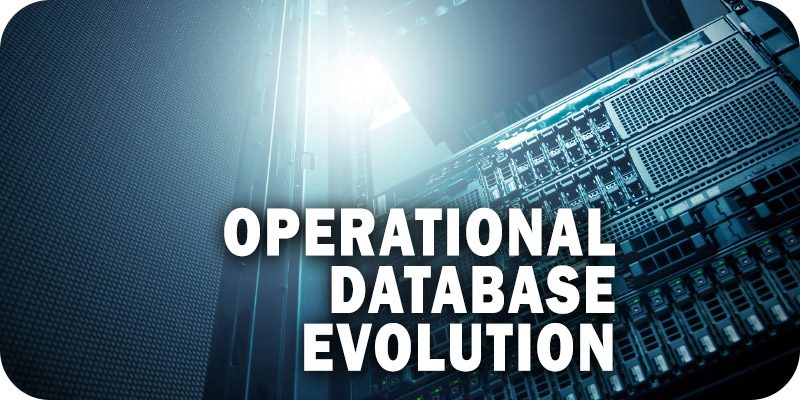

Solutions Review’s Expert Insights Series is a collection of contributed articles written by industry experts in enterprise software categories. In this feature, Yugabyte Founder and CTO Karthik Ranganathan offers commentary on the evolution of of operational databases.
As enterprises move applications and services to the cloud, they are migrating from big iron scale-up proprietary infrastructure to cloud native architectures. At first glance, traditional database management systems may appear cloud-ready for this critical change, but in reality they still face significant challenges around performance, availability, and simplicity when run at scale. Luckily, the evolution of operational databases has finally reached a point where it is ready to match cloud and modern application layers with a cloud native database. To understand how we got to where we are today, let’s walk through this database evolution and define what “cloud native” really means.
Moving from Monolithic to Distributed SQL – availability and sharding
The foundation of modern transactional databases starts with relational, or Structured Query Language (SQL) databases. These databases have set the standard for Online Transaction Processing (OLTP) for the past four decades. They have proved reliable, but are monolithic in nature, running on a single server. Increasing capacity requires vertical hardware scaling. This can be difficult and costly as it requires more specialized, expensive servers. Their method of copying data, via async or sync replication, can also result in data loss (with async) or downtime (with sync replication). SQL databases weren’t built to scale out to cloud architectures, so these problems are unsurprising.
A significant step towards a viable solution came with sharded and distributed databases – first NoSQL, then NewSQL. However, NoSQL also has its limits. NoSQL databases emphasize scalability and high availability, but compromise on consistency, ACID transactions, and familiar relational data modeling. They are typically used for workloads with very simple data access patterns without requiring transactional guarantees. They are not ideal for business-critical OLTP or HTAP applications that require referential integrity, transactional capabilities and flexible data access patterns using features such as joins.
The tradeoffs between availability (NoSQL) and RDBMS capabilities (NewSQL) force organizations to make a choice. Many early NoSQL adopters (mostly large tech companies) are having second thoughts about pouring more money into that strategy. NewSQL databases are cloud hosted, but not fully cloud native. They represent a critical step in the evolution of databases, but often lead to operational complexity, difficult application development, and inconsistent customer experiences.
Operational Database Evolution
Solving NoSQL Challenges with Distributed SQL
The next stage in the evolution of databases is distributed SQL, which combines the strongest aspects of traditional relational database management systems (RDBMS) with key cloud native capabilities, including scale and availability, made popular by NoSQL databases.
Distributed SQL offers continuous availability, replicating data across nodes and keeping it available regardless of node, zone, region, or data center failures. It allows organizations to scale horizontally on demand without impacting performance and is strongly consistent across geographic zones. It offers developers familiar RDBMS features, allowing them to build data-driven applications, and can strengthen security by providing encryption at rest and in transit.
Although no database reference architecture is perfect for every application, a cloud native distributed SQL database solves many of the challenges that plague NoSQL and other approaches, providing a consistent, versatile, cloud native data layer.
Defining “Cloud Native” for Databases
Cloud native is one of the more recent phases of the operational database evolution. Cloud native is rapidly becoming common practice at the application layer, as enterprises move transactions, microservices, and other applications to dynamic, containerized environments. The same can’t be said of the data layer that supports those applications.
NoSQL and NewSQL databases can be hosted in the cloud and horizontally deployed on cloud infrastructure, but they fall short ‒ in one way or another ‒ of keeping the core database functionality uniform and reliable.
A true cloud native database has five defining characteristics:
- Extreme elasticity, with the ability to scale clusters up and down, both quickly and reliably that allows it to use the virtually limitless resources in the cloud.
- Geo-redundancy and always-on availability to easily create multi-AZ and/or multi-region clusters, and expand or shrink availability zones or regions at any time while remaining resilient to both unplanned failures and planned upgrades. This is important because even the best public cloud services have suffered failures at the zone and region level.
- Simplified management – from hardware flexibility to seamless upgrades allows for seamless movement from one type of compute and storage to another for cost and performance reasons, and to leverage the latest technology advances in the cloud.
- Multi-cloud mobility to avoid cloud lock-in by moving to another cloud provider or co-existing with multiple providers.
- Data placement policies that define and enforce geo-specific data residency controls without impacting applications.
Today, business happens in the cloud. Enterprises will continue to expand operations beyond their own data centers and embrace the public cloud.
While a cloud approach helps organizations operate efficiently and effectively, enterprises need a multi-cloud model that gives them the same cloud native agility they get from microservices and containers. Modern, cloud native operational databases, like distributed SQL databases, fully support those operations, helping enterprises deliver high-value services much faster than legacy databases.

MMS • RSS
SAN FRANCISCO, May 18, 2023 — SingleStore today announced the launch of SingleStore Kai for MongoDB, a new API that turbocharges real-time analytics on JSON (JavaScript Object Notation) and vector based similarity searches for MongoDB based AI applications — without the need for any query changes or data transformations.
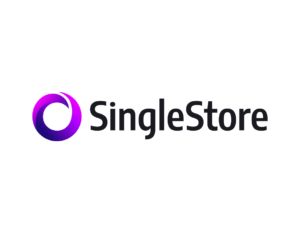 SingleStoreDB is a real-time distributed SQL database combining analytical and transactional workloads in one unified platform. In a new era of the ever increasing adoption of AI, making analytics real time and actionable is even more imperative. A vast majority of data accumulated in the world today is in JSON format, and MongoDB has grown to be one of the most widely adopted NoSQL databases to store and process JSON — powering a variety of use cases across martech, IoT, gaming, logistics, social media, e-commerce and content management applications.
SingleStoreDB is a real-time distributed SQL database combining analytical and transactional workloads in one unified platform. In a new era of the ever increasing adoption of AI, making analytics real time and actionable is even more imperative. A vast majority of data accumulated in the world today is in JSON format, and MongoDB has grown to be one of the most widely adopted NoSQL databases to store and process JSON — powering a variety of use cases across martech, IoT, gaming, logistics, social media, e-commerce and content management applications.
However, document databases are not optimized for analytics, and users often experience delays or lagging query performance attempting to perform analytics on JSON data. SingleStoreDB, by contrast, is architected to power real-time analytics on transactional data, enabling users to drive ultra-fast analytics on both structured and semi-structured (JSON) datasets. The new API is MongoDB wire protocol compatible, and enables developers to power interactive applications with analytics with SingleStoreDB using the same MongoDB commands.
“The demand for real time analytics is undeniable and critical to today’s economy,” said Raj Verma, CEO, SingleStore. “With SingleStore Kai, we’re enabling any developer using MongoDB’s NoSQL platform to use SingleStore’s SQL analytics data platform, at orders of magnitude improved performance, without changing a line of code.”
SingleStoreDB can effectively augment MongoDB as the analytical engine to power blazing fast analytics on collections of JSON data. More importantly, this powerful feature is available at no extra cost and is now open for public preview as part of the SingleStoreDB Cloud offering.
Some of the new capabilities of the API include:
- 100x-1,000x faster analytics. With SingleStore Kai, you can perform complex analytics on JSON data for MongoDB applications faster and more efficiently. Based on the latest performance benchmarks, SingleStoreDB was able to drive 100x faster analytical performance for most queries — with some even 1,000x faster compared to MongoDB. The SingleStore MongoDB API proxy translates the MongoDB queries into SQL statements that are executed by SingleStoreDB to drive lightning-fast analytics for your applications.
- AI/vector functionality for JSON. The new era of generative AI requires real-time analytics on all data, including JSON collections. SingleStoreDB supports vectors and fast vector similarity search using dot_product and euclidean_distance functions. And with the launch of SingleStore Kai, developers can now utilize the vector and AI capabilities on JSON collections within MongoDB — powering use cases like semantic search, image recognition, similarity matching and more.
- Simplicity and ease of use. No code changes, data transformations, schema migrations or changes to existing queries. Developers can continue to use existing MongoDB queries and don’t have to normalize or flatten data, or do extensive schema migrations to power fast analytics for their applications.
- Same MongoDB tools and drivers. By supporting the MongoDB wire protocol, SingleStore Kai allows MongoDB clients to communicate with a SingleStoreDB cluster. This means that developers who are familiar with MongoDB can easily power fast analytics on SingleStoreDB without having to learn a new set of tools or APIs — and can continue to use the same MongoDB tools, drivers, skill sets and ecosystem their customers are most familiar with.
- Easy data replication. As part of the MongoDB API offering, SingleStore is also introducing a fast and efficient replication solution (in private preview) that can easily replicate MongoDB collections into SingleStoreDB. This service is natively integrated into SingleStoreDB and leverages one of the most widely used features – SingleStore Pipelines — to drive speedy replication and real-time CDC (Change Data Capture), enabling customers to get started quickly and easily.
- Best of both worlds (NoSQL + SQL). SingleStoreDB is already MySQL wire protocol compatible. With the addition of SingleStore Kai for MongoDB, developers can essentially get the best of both worlds – the schema flexibility and simplicity of a JSON document store together with the speed, efficiency and complex analytical capabilities that only a relational SQL database can provide to power applications.
SingleStoreDB powers real-time data innovation for hundreds of customers including more than 100 Fortune 500, Forbes Global 2000, and Inc. 5000 brands across financial services and fintech, telecom and networking, streaming media, adtech,martech, supply chain logistics, and other verticals. Companies like 6sense, Cisco, Comcast, Dell, Disney, Heap, Hulu, LiveRamp, NBC, Siemens, SiriusXM/Pandora, Sony, Thorn, Uber, Western Digital, and others use SingleStoreDB to fuel real-time customer experience analytics and interactive dashboards.
“SingleStore has consistently demonstrated its ability to innovate and evolve,” said Carl Olofson, Analyst, IDC. “We’ve seen a growing demand in the analytic database market for leveraging a range of data, including JSON documents, together with relational tables in a single system. SingleStore Kai is an outstanding example of such leveraging, as it makes analytics on JSON fast and easy within SingleStore’s traditional SQL system.”
Click here to try SingleStore Kai for MongoDB today.
About SingleStore
SingleStore delivers the world’s fastest distributed SQL database for real-time applications, SingleStoreDB. By combining transactional and analytical workloads, SingleStore eliminates performance bottlenecks and unnecessary data movement to support constantly growing, demanding workloads. Digital giants like Hulu, Uber and Comcast, and many more of the world’s leading SaaS providers, choose SingleStore to unleash the power of their data – supercharging exceptional, real-time data experiences for their customers.
Source: SingleStore

MMS • Ben Linders

Artificial intelligence (AI) can help companies identify new opportunities and products, and stay ahead of the competition. Senior software managers should understand the basics of how this new technology works, why agility is important in developing AI products, and how to hire or train people for new roles.
Zorina Alliata spoke about leading AI change at OOP 2023 Digital.
In recent studies, 57% of companies said they will use AI and ML in the next three years, Alliata explained:
Chances are, your company already uses some form of AI or ML. If not, there is a high chance that they will do so in the very near future in order to stay competitive.
Alliata mentioned that AI and ML are increasingly being used in a variety of industries, from movie recommendations to self-driving cars, and are expected to have a major impact on businesses in the coming years.
Software leaders should be able to understand how the delivery of ML models is different from regular software development. To manage the ML development process correctly, it is important to have agility by using a methodology that allows for quick pivots, iterations, and continuous improvement, Alliata said.
According to Alliata, software leaders should be prepared to hire or train for new roles such as data scientist, data engineer, ML engineer. She mentioned that such roles might not yet exist in current software engineering teams, and they require very specific skills.
InfoQ interviewed Zorina Alliata about adopting AI and ML in companies.
InfoQ: Why should companies care about artificial intelligence and machine learning?
Zorina Alliata: AI and ML can help companies to make better decisions, increase efficiency, and reduce costs. With AI and ML they can automate repetitive processes and improve the customer experience significantly.
A few years ago when I had a fender bender with my car, I had to communicate with my insurance company through phone calls, and take time off work to take my car to specific repair shops. Just last year when my teenage son bumped his car in the parking lot, he used his mobile app to communicate with the insurance company right away, upload images of the car damage, get a rental car, and arrange for his car to be dropped off for repairs by a technician. He could see the status of the repairs online, he received automatic reports and his car was delivered at home when fixed. Behind his pleasant experience, there was a lot of AI and ML – image recognition, chatbots, sentiment analysis.
Another thing companies can benefit from is mining insights from data. For example, looking at all your sales data, the algorithms might find patterns that were not previously known. A common use for this is in segmenting and clustering populations in order to better define a focused message. If you can cluster all people with a high propensity to buy a certain type of insurance policy, then your marketing campaigns can be much more effective.
InfoQ: What should senior software managers know about artificial intelligence and machine learning?
Alliata: Let me give you an example. We sometimes do what we call unsupervised learning – that is, we analyse huge quantities of data just to see what patterns we can find. There is no clear variable to optimize, there is no defined end result.
Many years ago, I read about this airline that used unsupervised learning on their data and the machine came back with the following insight: it found that people who were born on a Tuesday were more likely to order vegetarian meals on a flight. This was not a question anyone had posed, or an insight anyone was ready for.
As a software development manager, how do you plan for whatever weird or amazing insight the algorithms will deliver? We just might not even know what we are looking for until later in the project. This is very different from regular software development where we have a very clear outcome stated from the beginning, for example: display all flyers and their meals on a webpage.
InfoQ: What can companies do to prepare themselves for AI adoption?
Alliata: Education comes first. As a leader, you should understand what the benefits of using AI and ML are for your company, and understand a bit about how the technology works. Also, it is your task to communicate and openly discuss how AI will change the work and how it will affect the people in their current jobs.
Having a solid strategy and a solid set of business use cases that will provide real value is a great way to get started, and to use as your message and vision.
Promoting lean budgeting and agile teams will help quickly show value before large investments in AI resources and technology are made.
Establishing a culture of continuous improvement and continuous learning is also necessary. The technology is changing constantly and the development teams need time to keep up with the newest research and innovation.
First Real-Time Virtual Database Platform to Deliver Support for Both SQL and noSQL Data …

MMS • RSS
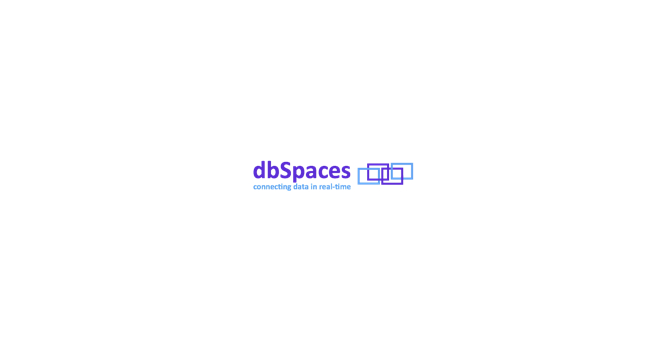
Boston, MA, May 18, 2023 –(PR.com)– First Real-time Virtual Database Platform to Deliver Support for both SQL and noSQL data source access as a single view
Looks and feels like a relational database
Support for complex data, including JSON and COBOL
Data policy support
Enhanced security based on Hippocratic security
Provides both SQL and noSQL APIs
Core product features are expanded with add-ons
dbSpaces Ltd. announced today the general availability of dbSpaces CORE v1.0, dbSpaces MongoSQL v1.0 and dbSpaces COBOL v1.0 servers, after 60+ man years of effort.
dbSpaces allows organizations to orchestrate and unify their data into a single view regardless of location and format in real-time allowing them to perform ETL, Reporting/Business Intelligence, Business Processes, or Artificial Intelligence requests against data assets stored in SQL or noSQL databases.
dbSpaces does not provide standard or enterprise servers, dbSpace provides a single CORE server that can be expanded with add-ons, allowing companies to only purchase what they need.
Current add-ons available include; Advanced Services, Events & Alerts, Data Policy, Data Sensitivity, Data Orchestration and Hippocratic Security.
dbSpaces does provide dedicated servers for MongoDB and COBOL, providing SQL access to developers and organizations who only want to access these data sources.
dbSpaces allows COBOL modernization allowing applications to store their COBOL data in supported data source. COBOL applications can also access data stored in other data source and supported message queues.
dbSpaces Hippocratic security provides the ability to restrict access to data using a finer grain of control using straight forward SQL based commands. In dbSpaces as well as having the ability to create Roles you are able to create both Purpose and Recipient privileges for accessing data.
Advanced services provides support for multiple database instances, replication, table partitions, enhanced server and user access controls. Access to backend data sources can be restricted by day and time.
dbSpaces is a game changer for organizations wanting to securely access all of their valuable data assets. Not based on complex frameworks, but on a virtual database that all organizations already understand.
For further information contact the market department at marketing_dept@dbspaces.com
First Real-Time Virtual Database Platform to Deliver Support for Both SQL and noSQL Data …

MMS • RSS

Boston, MA May 18, 2023 –(PR.com)– First Real-time Virtual Database Platform to Deliver Support for both SQL and noSQL data source access as a single view
Looks and feels like a relational database
Support for complex data, including JSON and COBOL
Data policy support
Enhanced security based on Hippocratic security
Provides both SQL and noSQL APIs
Core product features are expanded with add-ons
dbSpaces Ltd. announced today the general availability of dbSpaces CORE v1.0, dbSpaces MongoSQL v1.0 and dbSpaces COBOL v1.0 servers, after 60+ man years of effort.
dbSpaces allows organizations to orchestrate and unify their data into a single view regardless of location and format in real-time allowing them to perform ETL, Reporting/Business Intelligence, Business Processes, or Artificial Intelligence requests against data assets stored in SQL or noSQL databases.
dbSpaces does not provide standard or enterprise servers, dbSpace provides a single CORE server that can be expanded with add-ons, allowing companies to only purchase what they need.
Current add-ons available include; Advanced Services, Events & Alerts, Data Policy, Data Sensitivity, Data Orchestration and Hippocratic Security.
dbSpaces does provide dedicated servers for MongoDB and COBOL, providing SQL access to developers and organizations who only want to access these data sources.
dbSpaces allows COBOL modernization allowing applications to store their COBOL data in supported data source. COBOL applications can also access data stored in other data source and supported message queues.
dbSpaces Hippocratic security provides the ability to restrict access to data using a finer grain of control using straight forward SQL based commands. In dbSpaces as well as having the ability to create Roles you are able to create both Purpose and Recipient privileges for accessing data.
Advanced services provides support for multiple database instances, replication, table partitions, enhanced server and user access controls. Access to backend data sources can be restricted by day and time.
dbSpaces is a game changer for organizations wanting to securely access all of their valuable data assets. Not based on complex frameworks, but on a virtual database that all organizations already understand.
For further information contact the market department at marketing_dept@dbspaces.com
Contact Information:
dbSpaces Ltd.
Scott Jones
+44 781641640
Contact via Email
www.dbspaces.com
Read the full story here: https://www.pr.com/press-release/887175
Press Release Distributed by PR.com
Copyright © 2023 PR.com and its licensors
, source US Press Releases

MMS • RSS
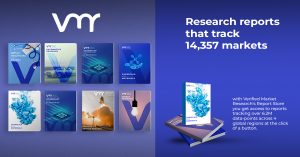
New Jersey, United States – The Global NoSQL Software Market report offers a comprehensive analysis by combining qualitative and quantitative insights. It provides a detailed overview of the Global NoSQL Software Market dynamics, industry structure, and market size, covering both macro and micro aspects. The report segments the market based on type and application, delving into the in-depth analysis of influencing factors. It highlights significant market changes, identifies obstacles faced by companies and competitors, and captures future trends and market opportunities.
From a global perspective, the report thoroughly examines the Global NoSQL Software Market size, including value, capacity, production, and consumption, across key regions such as North America, Europe, Asia Pacific (China, Japan), and others. It categorizes the market data by manufacturers, region, type, and application, providing valuable insights into market status, market share, growth rate, and future trends. The report analyzes market drivers, opportunities, challenges, risks, entry barriers, sales channels, and distributors, and includes a comprehensive Porter’s Five Forces Analysis.
Get Full PDF Sample Copy of Report: (Including Full TOC, List of Tables & Figures, Chart) @ https://www.verifiedmarketresearch.com/download-sample/?rid=153255
Key Players Mentioned in the Global NoSQL Software Market Research Report:
Amazon, Couchbase, MongoDB Inc., Microsoft, Marklogic, OrientDB, ArangoDB, Redis, CouchDB, DataStax.
Covering primary market players, consumer buying habits, and sales strategies, the report sheds light on the dynamic market’s potential growth prospects in the coming years. It also evaluates market factors such as sales strategy, major players, and investment opportunities. Understanding customer buying habits is emphasized, especially for significant firms planning to launch new products. The report facilitates a quick examination of the global market position by including information on key contributors, company strategies, consumer demand, customer behavior improvements, detailed sales figures, and customer purchasing habits.
Global NoSQL Software Market Segmentation:
NoSQL Software Market, By Type
• Document Databases
• Key-vale Databases
• Wide-column Store
• Graph Databases
• Others
NoSQL Market, By Application
• Social Networking
• Web Applications
• E-Commerce
• Data Analytics
• Data Storage
• Others
Inquire for a Discount on this Premium Report @ https://www.verifiedmarketresearch.com/ask-for-discount/?rid=153255
What to Expect in Our Report?
(1) A complete section of the Global NoSQL Software market report is dedicated for market dynamics, which include influence factors, market drivers, challenges, opportunities, and trends.
(2) Another broad section of the research study is reserved for regional analysis of the Global NoSQL Software market where important regions and countries are assessed for their growth potential, consumption, market share, and other vital factors indicating their market growth.
(3) Players can use the competitive analysis provided in the report to build new strategies or fine-tune their existing ones to rise above market challenges and increase their share of the Global NoSQL Software market.
(4) The report also discusses competitive situation and trends and sheds light on company expansions and merger and acquisition taking place in the Global NoSQL Software market. Moreover, it brings to light the market concentration rate and market shares of top three and five players.
(5) Readers are provided with findings and conclusion of the research study provided in the Global NoSQL Software Market report.
Key Questions Answered in the Report:
(1) What are the growth opportunities for the new entrants in the Global NoSQL Software industry?
(2) Who are the leading players functioning in the Global NoSQL Software marketplace?
(3) What are the key strategies participants are likely to adopt to increase their share in the Global NoSQL Software industry?
(4) What is the competitive situation in the Global NoSQL Software market?
(5) What are the emerging trends that may influence the Global NoSQL Software market growth?
(6) Which product type segment will exhibit high CAGR in future?
(7) Which application segment will grab a handsome share in the Global NoSQL Software industry?
(8) Which region is lucrative for the manufacturers?
For More Information or Query or Customization Before Buying, Visit @ https://www.verifiedmarketresearch.com/product/nosql-software-market/
About Us: Verified Market Research®
Verified Market Research® is a leading Global Research and Consulting firm that has been providing advanced analytical research solutions, custom consulting and in-depth data analysis for 10+ years to individuals and companies alike that are looking for accurate, reliable and up to date research data and technical consulting. We offer insights into strategic and growth analyses, Data necessary to achieve corporate goals and help make critical revenue decisions.
Our research studies help our clients make superior data-driven decisions, understand market forecast, capitalize on future opportunities and optimize efficiency by working as their partner to deliver accurate and valuable information. The industries we cover span over a large spectrum including Technology, Chemicals, Manufacturing, Energy, Food and Beverages, Automotive, Robotics, Packaging, Construction, Mining & Gas. Etc.
We, at Verified Market Research, assist in understanding holistic market indicating factors and most current and future market trends. Our analysts, with their high expertise in data gathering and governance, utilize industry techniques to collate and examine data at all stages. They are trained to combine modern data collection techniques, superior research methodology, subject expertise and years of collective experience to produce informative and accurate research.
Having serviced over 5000+ clients, we have provided reliable market research services to more than 100 Global Fortune 500 companies such as Amazon, Dell, IBM, Shell, Exxon Mobil, General Electric, Siemens, Microsoft, Sony and Hitachi. We have co-consulted with some of the world’s leading consulting firms like McKinsey & Company, Boston Consulting Group, Bain and Company for custom research and consulting projects for businesses worldwide.
Contact us:
Mr. Edwyne Fernandes
Verified Market Research®
US: +1 (650)-781-4080
UK: +44 (753)-715-0008
APAC: +61 (488)-85-9400
US Toll-Free: +1 (800)-782-1768
Email: sales@verifiedmarketresearch.com
Website:- https://www.verifiedmarketresearch.com/
